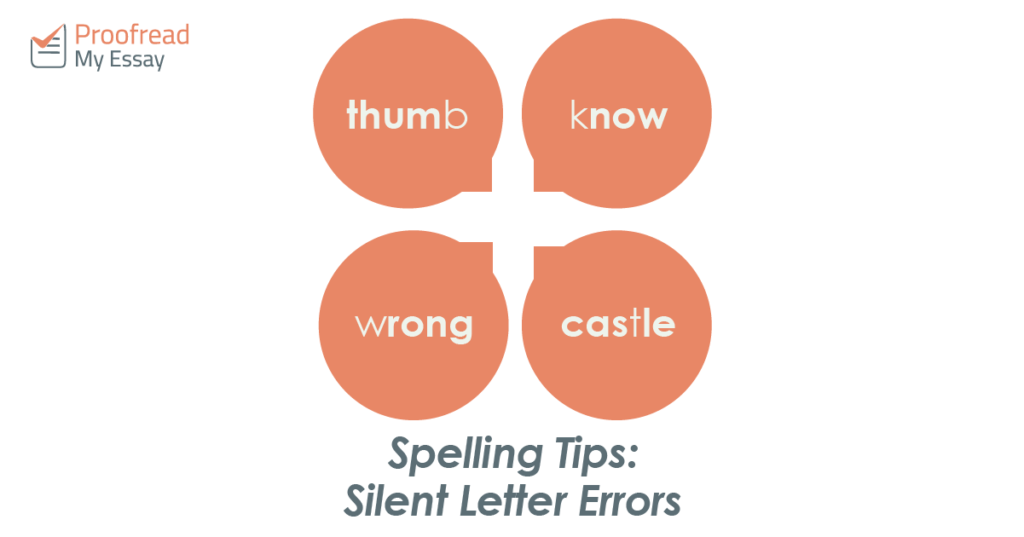The phrase ‘silent but deadly’ can be used in three situations: warning people about ninjas, discussing spelling, and something we’re too polite to mention.

(Photo: Joey Gannon/wikimedia)
Thankfully, in this case, we’re focusing on the second of those listed terrors: silent letter errors.
What Are Silent Letters?
Many spelling errors occur because a word isn’t pronounced the same way it’s spelled. Silent letters – i.e. letters which aren’t pronounced when the word is spoken – are a common cause of this.
The word ‘doubt’, for example, is pronounced to rhyme with ‘out’. The ‘b’ is silent. As such, it would be easy to misspell it as ‘dout’ if you didn’t already know that it should have a ‘b’ in it!
Why Are Some Letters Silent?
Silent letters have been described as ‘ghosts of pronunciation past’. In other words, they’re there because we used to pronounce words differently. This is often because a word has come from another language and changed over time. We can see this if we look at the word ‘knight’.

Like many words that start ‘kn-’, ‘knight’ comes from old Germanic. Originally, the ‘k’ in words like this would have been pronounced. Over time, though, the ‘k’ was dropped from the pronunciation while being kept in the spelling.
Find this useful?
Subscribe to our newsletter and get writing tips from our editors straight to your inbox.
Sometimes this is quite useful. The silent ‘k’ helps us tell the difference between ‘knight’ and ‘night’ when we use these words in writing, for instance. But it also makes spelling trickier.
And so here we are today, dealing with words that aren’t spelled how they sound!
How Do I Avoid Silent Letter Errors?
Sadly, there’s no simple rule for doing this. And there are many words with silent letters! However, there are some common silent letter combinations you should look out for, including:
- ‘B’ after ‘m’ (e.g. ‘thumb’ or ‘plumber’)
- ‘G’ before ‘n’ (e.g. ‘gnome’ or ‘sign’)
- ‘K’ before ‘n’ (e.g. ‘know’ or ‘knight’)
- ‘N’ after ‘m’ (e.g. ‘hymn’ or ‘autumn’)
- ‘P’ is usually silent before ‘s’, ‘t’ and ‘n’ (e.g. ‘psychic’, ‘receipt’ or ‘pneumonia’)
- ‘W’ before ‘r’, such as in ‘write’, ‘wrap’ or ‘wrong’
- ‘T’ is often silent after an ‘s’ (e.g. ‘castle’ or ‘listen’), but it can also be silent in other words (e.g. ‘mortgage’ or ‘soften’)
This isn’t a complete list of the silent letters in English, but if you can remember these examples you should find it easier to spot difficult spellings when they occur.



